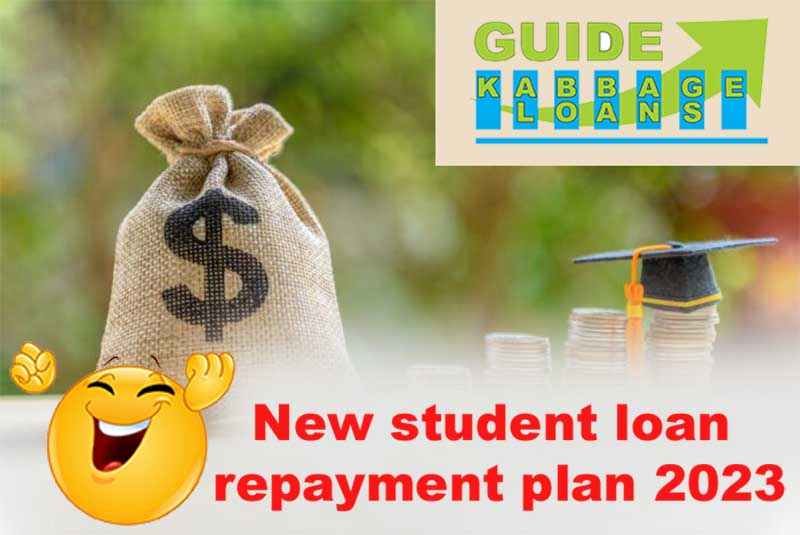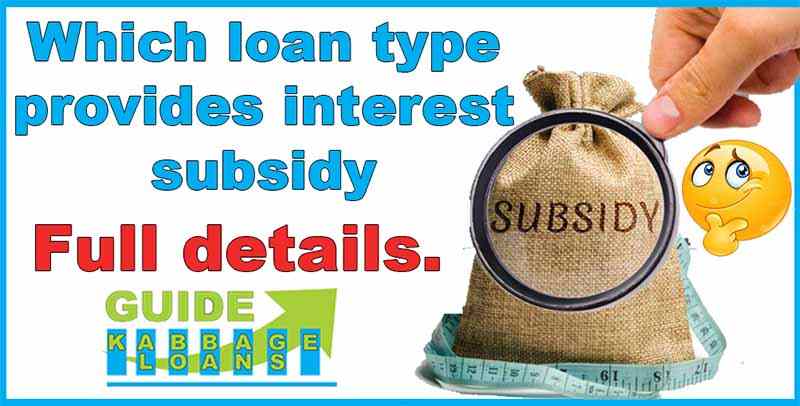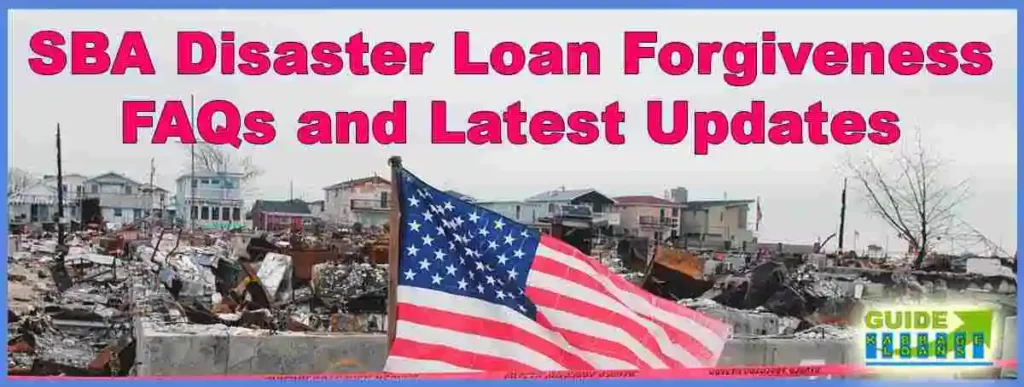Last updated on November 4th, 2024 at 11:48 am
If you are one of the millions of Americans burdened by student loan debt. You may be wondering if there is a way to have your loans forgiven. Fortunately, there are several programs available to help borrowers, including student loan forgiveness through FAFSA. In this article, we’ll explore the basics of FAFSA financial aid, what types of aid are available, and the complete FAFSA student loan forgiveness application.
What is FAFSA financial aid?
The FAFSA is a form that students and their families fill out to determine their eligibility for financial aid from the federal government, state governments, and colleges and universities.
Financial aid can take the form of grants, scholarships, work-study programs, and loans. FAFSA financial aid is intended to help students pay for tuition fees, books, and other educational expenses.
Does FAFSA give student loans?
No FAFSA does not provide student loans, because this is a Loan forgiveness application, not a loan company, While the FAFSA itself does not provide student loans, it is used to determine eligibility for federal student loans, such as Direct Loans and Perkins Loans.
These loans are available to eligible students who need to borrow money to pay for their education. Unlike private student loans, federal student loans typically have lower interest rates and more flexible repayment options.
Does FAFSA forgive student loans?

FAFSA itself does not directly forgive student loans, but it plays a key role in accessing financial aid and programs that might include loan forgiveness. FAFSA is primarily a tool for applying for federal grants, work-study, and student loans. To receive federal student loans, students must first submit the FAFSA, which determines eligibility and financial need.
Does student loan forgiveness include FAFSA?
Yes, student loan forgiveness programs can be accessed through FAFSA. If you have an interest in pursuing student loan forgiveness, you’ll need to complete an application and provide supporting documentation to your loan servicer or the Department of Education. The application process can vary depending on the type of forgiveness program you are applying for.
What types of financial aid does the FAFSA provide access to?
The FAFSA provides access to a wide range of financial aid, including federal grants, scholarships, work-study programs, and loans. Federal grants, such as the Pell Grant, do not need to be repaid, while federal loans must be repaid with interest.
The FAFSA may also be used to determine eligibility for state grants and scholarships, as well as institutional aid offered by colleges and universities.
FAFSA student loan forgiveness application process.
If you’re interested in applying for student loan forgiveness through FAFSA, you’ll need to determine which program you’re eligible for and complete the application process. This may involve providing proof of employment or other documentation to demonstrate your eligibility.
The application process can take several months or longer, depending on the program and the volume of applications being processed.
How long does the FAFSA student loan forgiveness application process take?
The length of the FAFSA student loan forgiveness application process can vary depending on the program and the volume of applications being processed. In some cases, the process may take several months or longer.
It’s important to be patient and follow up with your loan servicer or the Department of Education if you have any questions or concerns. People are associating FAFSA student loan forgiveness with the student loan forgiveness program running in the USA. Because the loans taken under FAFSA are student loans only.
Can you get FAFSA if you have student loans?
Yes, you can still be eligible for FAFSA financial aid even if you have existing student loans. Your current student loan debt may impact your eligibility for certain types of financial aid, such as need-based grants and scholarships. However, it’s still important to fill out the FAFSA to see what types of aid you may be eligible for.
FAFSA student loan forgiveness for teachers.
One of the most popular student loan forgiveness programs is the Teacher Loan Forgiveness program, which is available to eligible teachers who work in low-income schools or educational service agencies. This program allows eligible borrowers to have up to $17,500 of their Direct or FFEL loans forgiven after five years of qualifying service.
FAFSA student loan relief application.
If you’re experiencing financial hardship and struggling to make your student loan payments, you may be eligible for student loan relief through the Department of Education. Relief options may include income-driven repayment plans, deferment, forbearance, or loan consolidation. To apply for student loan relief, you’ll need to contact your loan servicer or the Department of Education.
Why is it best to file the FAFSA as early as possible?
It’s generally recommended to file the FAFSA as early as possible to maximize your chances of receiving financial aid. Some types of financial aid, such as grants and scholarships, are awarded on a first-come, first-served basis. By filing the FAFSA early, you’ll have a better chance of receiving these types of aid.
What happens to your FAFSA if you drop a class?
If you drop a class or withdraw from school, then your question is Does dropping a class affect FAFSA? So, it may impact your financial aid eligibility. Depending on the timing of the drop or withdrawal, you may be required to return a portion of any financial aid you’ve already received. Additionally, dropping a class may impact your satisfactory academic progress, which could impact your future financial aid eligibility.
It’s important to check with your school’s financial aid office to understand how dropping a class may impact your specific situation.
What document explains your rights and responsibilities as a federal student loan borrower?
The Master Promissory Note/MPN is the main document that tells you about your rights and responsibilities when you take out a federal student loan. When you sign this document, you are agreeing to pay back the loan and to follow all the terms that come with it.
Here is what the MPN explains:
- Loan details: Things like the interest rate, fees, and how you will pay it back.
- Your rights as a borrower: Options you might have if you can’t pay right away, like getting a break or even having some of the loan forgiven.
- Your responsibilities: It is your duty to make payments on time, and to tell your loan servicer if you move or change contact details.
Who should you contact if you have trouble making payments once you leave school?
If you are having trouble making payments after leaving school, here are three places you can reach out to for help:
- Your college’s student aid office: They can guide you and let you know about any support options available.
- Your loan servicer: This is the company that handles your loan payments. They can help you find ways to lower, pause, or adjust your payments.
- Federal Student Aid Department: They can give you information on government assistance and help you find the best options for your situation.
Getting in touch with them early can help you avoid late fees and protect your credit score.
Conclusion.
Navigating the FAFSA and student loan forgiveness options can be challenging, but understanding the basics can help you take control of your financial future. The FAFSA serves as a gateway to valuable financial aid programs, including grants, scholarships, and loans, that may ease the burden of college costs.
While FAFSA itself doesn’t provide or forgive loans, it plays a crucial role in accessing federal aid and certain forgiveness programs.
Faq’s
Who is eligible for FAFSA student loan forgiveness?
Eligibility requirements vary depending on the type of forgiveness program you're applying for, but generally, you must have federal student loans and meet certain criteria, such as working in a public service job or experiencing total and permanent disability.And people fully affected by Covid-19 are eligible for this
How do I apply for FAFSA student loan forgiveness?
To apply for FAFSA student loan forgiveness, you will need to complete an application and provide supporting documentation to your loan servicer or the Department of Education. You can apply for this at both your loan service center or the education department.
The application process can vary depending on the type of forgiveness program you're applying for.
How much of my student loan debt can be forgiven through FAFSA?
The amount of student loan debt that can be forgiven through FAFSA varies depending on the program. Some programs offer full forgiveness, while others offer partial forgiveness. And in most programs, loans up to $10,000 are completely forgiven. In some cases, loans up to $20,000 are forgiven completely.
Apart from this, nowhere in any of the statements has it been said that loans above $20,000 are forgiven. So it depends on what kind of loan you have taken.
Will student loan forgiveness through FAFSA affect my credit score?
Student loan forgiveness through FAFSA should not have a negative impact on your credit score, Because your credit score does not decrease in any loan forgiveness program. After all, the credit score does not decrease in the forgiveness program.
If you do not pay the loan on time and any company shows its settlement, in that case, your credit score is affected.
Thanks for your visit.
(FAFSA student loan forgiveness application)
Disclaimer: Student loan forgiveness policies are subject to change, and eligibility requirements may vary. Readers are encouraged to consult with official sources, such as the U.S. Department of Education, before making decisions regarding student loan forgiveness.





